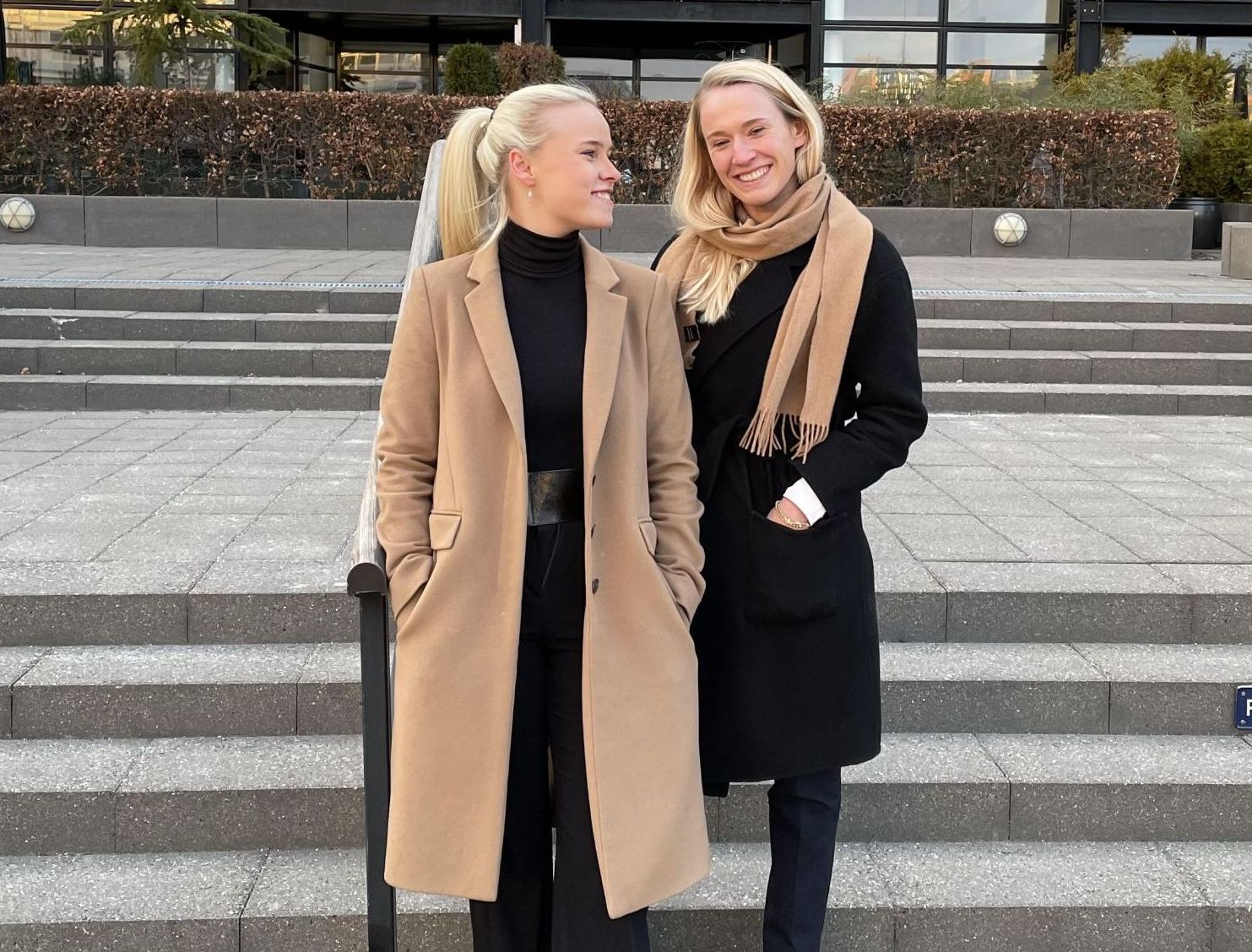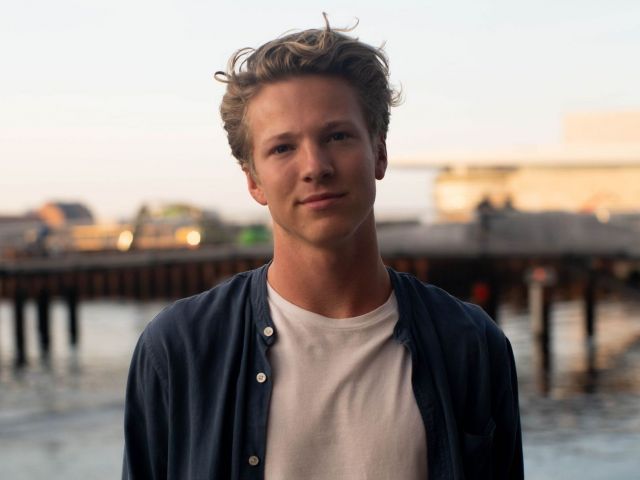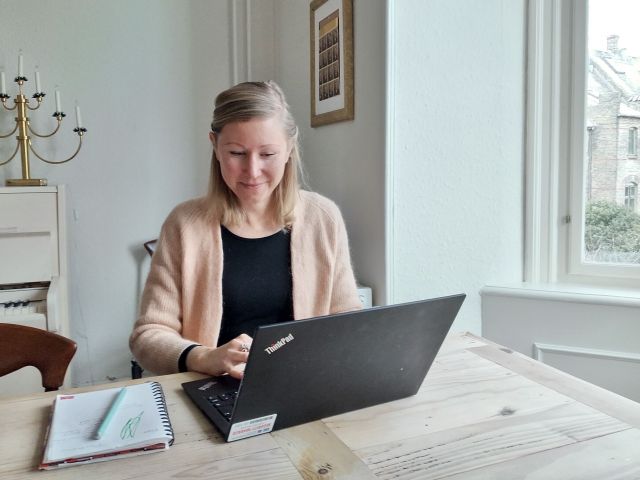Female Leadership Academy at CBS wants women to shoot for the stars

It all started with a game of beer pong. One year later, Female Leadership Academy has conducted numerous workshops with female role models including the TV business ‘Dragon’, Mia Wagner. Together, they have launched a blog and podcast while expanding their team with more than 20 volunteers and creating a toolbox. But they have a serious challenge: “How can you change a problem if people cannot see the problem is there?”
“We believe all genders, and humans for that matter, are equal. That also covers talent. And if women have the same talents as men, they should also be granted the same possibilities. But unfortunately, that’s not the case,” Augusta Klingsten Peytz says.
Along with Maria Anker Andersen, she’s co-founder and president of the student organization Female Leadership Academy at CBS.
Although the organization has only been running for a year, it has been active – despite a raging global pandemic.
In fact, it has conducted 12 workshops with prominent businesswomen, launched blogs and podcasts and educated 60 students at its academy. It aims to increase diversity on the career track and ultimately in top management and other leadership positions.
According to the two presidents, there is still a long way to go before the scale is in balance and women and men have equal possibilities in top management. But they have a dream.
“The best conceivable scenario would be if the organization was no longer needed and we could eventually dissolve it. However, unfortunately there’s a major distortion in the gender distribution in leadership positions. And as long as that fact remains, we will carry on committing ourselves to the cause,” Augusta Klingsten Peytz says.
A demotivating number 102
When World Economic Forum released its annual equality report for 2020, Denmark landed in an unflattering position as number 102 worldwide regarding the number of women in leadership positions and on management boards.
And according to Female Leadership Academy, its mission is to change that “demotivating” number, as they call it.
The best conceivable scenario would be if the organization was no longer needed
This is done through a series of workshops, informal so-called FLA networking groups, events and webinars.
The organization is open to all students across Denmark and enrolls 30 applicants per semester. During a six-week academy, the student attendees attend six workshops, where they are provided with a comprehensive leadership toolbox containing a variety of teaching skills such as insights into personal talents and behavior, wage negotiations, self-promotion, writing CVs, personal branding and body empowerment.
“The purpose is to co-develop the personal leadership in our attendees by creating an environment where the attendees can unfold their natural talents and apply a combination of soft skills and hard skills into their own context,” Maria Anker Andersen says.
“Of course, these skills are relevant for everyone. However, if we want to empower female students and spur them to climb up the career ladder after graduation, we believe it’s important that they feel well equipped already in their undergraduate days,” Augusta Klingsten Peytz adds.
In order to provide the attendees with different role-models and inspiration for their careers, the workshops are hosted by prominent businesswomen from a variety of fields, ranging from law to tech and consulting.
Role models such as Mia Wagner
And despite the organization’s young age, its speakers have included the Mayor of Holbæk Municipality Christina Krzyrosiak Hansen, Pernille Erichsen from Dansk Industri and Mia Wagner, from the Danish equivalent of Dragon’s Den (‘Løvens Hule’) and former CEO of the company Freeway.
But the workshops are not all. Female Leadership Academy also assists in the formation of what they call FLA groups – networking groups where student attendees can meet up on their own terms.
In Denmark, only 19.9% of top positions in the 50 biggest companies are occupied by women. And to put it mildly, those aren’t impressive figures
And by joining the academy, the students can also take part in the FLA networks, where all members are invited to leadership and network events going forward.
“We believe in creating an environment of empowerment, development and network opportunities, which are key building blocks for learning and developing as individuals and as a whole,” Maria Anker Andersen says and goes on:
“We want to show our members that everyone can shoot for the stars by providing skills, supporting motivation and addressing the barriers that many women encounter when they are seeking big-league careers.”
And according to the two founders and presidents, there are indeed a considerable number of barriers.
From ping-pong to revolt
The idea of establishing Female Leadership Academy was born over a game of beerpong between Maria Anker Andersen and Augusta Klingsten Peytz in Café Nexus at CBS.
“While shooting ping-pong balls into each other’s beer cups, we were wondering why all the information, education and offers regarding leadership and management in the business community weren’t available for us as students,” says Maria Anker Andersen and continues:
“Personally, we needed some tools to accelerate our own careers and leadership aspirations, but we also wanted to meet other like-minded students with the same interests in careers and leadership as ourselves. And that was why we created Female Leadership Academy.”
However, sharing a common interest is not the sole purpose of the academy.
According to the two presidents and founders, the team behind Female Leadership Academy is right now working on a white paper that reveals some staggering numbers and figures that fuel the organization’s motivational fire.
“In Denmark, only 19.9% of top positions in the 50 biggest companies are occupied by women. And to put it mildly, those aren’t impressive figures considering that women make up approximately 50% of the population,” Augusta Klingsten Peytz says.
“At the same time,” she adds: “If you look at the CEOs of those 50 companies, only three of them are women – and they all come from abroad.”
“We can see that not many women occupy leadership posts in Denmark, and those who do, are not Danish. And we think this tendency is a problem for all the women in Danish society with ambitions about making it to the top in the business world,” she says.
We need to acknowledge that there’s a disparity between men and women in management positions, because only then can we begin to do something about it
The reason, according to the presidents, is to be found in a lack of awareness about the diversity problem, they explain, referring to a report by BCG from 2019 stating that only 3% of Danish men see diversity as a bias problem.
“People are clearly not aware that there’s a gender equality problem, and that makes solving it difficult,” Augusta Klingsten Peytz says and goes on:
“I mean, how can you change a problem, if people cannot see the problem is there? We believe the answer is that we, first and foremost, need to acknowledge that there’s a disparity between men and women in management positions, because only then can we begin to do something about it.”
Maria Anker Andersen agrees and draws attention to a certain tendency that seems to occur within the world of leadership and management.
“CBS professor Sara Louise Muhr talks about ‘unconscious bias’ covering the phenomenon where management members tend to hire people that remind them of themselves because it makes them feel secure. Taking this perspective, if all employers are men, they will most likely hire other men that remind them of themselves,” she says and continues:
“And if male employers cannot abstract from that tendency, it’s difficult to change it. But if we create awareness of the problem and acknowledge it, we can begin to change the pattern. And that’s exactly what we’re trying to do with Female Leadership Academy.
Digital academy and cocktails
The student organization had its first info night in February 2020, attended by over 250 students. Since then, the academy has been busy. It has conducted two academy programs with a total of 60 attendees and more than 100 applicants per semester.
It has also launched its own podcast, FLAcast, in which a wide range of successful female role models talk about what they have learned and their career journeys. And if that isn’t enough, it has also launched a blog where students and others who are interested in management can read about and follow the academy’s thoughts on leadership, diversity and management.
But like all other student organizations at CBS, Female Leadership Academy has also been affected by the global pandemic.
“We had just held our first info night at CBS, hosted by Mia Wagner, when everything suddenly turned upside down. And now, we really miss seeing each other physically,” says Augusta Klingsten Peytz and goes on:
“However, we fairly quickly moved our activities online so that our members can attend the workshops, FLA groups and events virtually. And to keep up the mood, we’ve actually also dispatched packages with cocktails out to our members.”
Furthermore, the two founders explain, Female Leadership Academy’s digital journey will not end there. At the moment, it is developing its own online platform in the hope of facilitating more activities in the future.



































































































































Comments